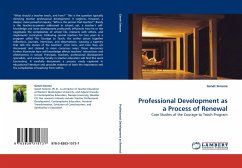School bullying continues to receive increasing attention in psychological research and in public awareness. However, bullies and victims are not the only participants in bullying situations. There are also those who witness bullying. As such, there has been a trend in the literature to frame bullying as a social phenomenon, as is the case in the present study. As bystanders are present during most bullying situations, they are in the position to either perpetuate or discourage bullying in the short and long term. Research indicates that students encourage bullying by joining in, cheering, or providing an audience, whereas they discourage it by directly opposing bullying, befriending the victimized, or telling an adult. Therefore, the central aim of this study was to uncover some of the factors contributing to the attitudes and behavioural choices of bystanders. With this type of information, interventions can be tailored to change the behaviour of bystanders, thereby altering the sources of reinforcement available for bullying behaviour and peer intervention. This would likely contribute to a reduction bullying rates.
Bitte wählen Sie Ihr Anliegen aus.
Rechnungen
Retourenschein anfordern
Bestellstatus
Storno








